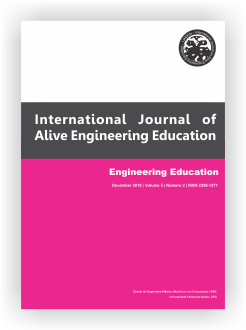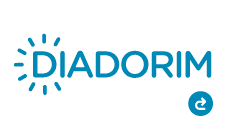Flipping the classroom: applying the circuit in Foundation Design
DOI:
https://doi.org/10.5216/ijaeedu.v5i2.54735Parole chiave:
Engineering Education, Alive Engineering Education, IJAEEdu, ICAEEduAbstract
The assessment of the student's academic results is one of the most challenging tasks in education because it may be subjective, lack clarity and goals. In addition, many professors and institutions have a deficient comprehension of the assessments' purpose and have used the students' grades as a means to determine the reach of the educational objectives. Trying to address that question, the Circuit is an alternative form of assessment based on the interaction and cooperation between students that aims to verify the results of the learning process through ludic activities. This paper presents the results of applying the Circuit in Foundation Design, an undergraduate course of the 5th-year of Civil Engineering at the Universidade Estadual de Santa Cruz - UESC, in Ilhéus, Brazil, in 2017. The professor decided to use the Circuit in this course as an attempt to enable the students to interact and share what they have learned with their classmates. By doing so, the professor considered the concept of the Zone of Proximal Development, from Vygotsky, assessing the students’ ability to deal with problems with the help of their peers and learn with them. The method, although containing many rules, was easy to apply. The students, divided into groups of three, were expected to create two reports based on data for one Standard Penetration Test – SPT - and one Cone Penetration Test – CPT. Each member of the group played a different role on the activity: the "engineer" produced the report; the "technician" completed the missing data of the tests; the "manager" corrected the final reports. After completing the activity, each student gave feedback on its negative and positive aspects and this information was used to compose the results. From the results, the method showed to be effective because more than half the students pointed out that it developed their sense of responsibility and was innovative. Conversely, it may have failed with respect to the distribution of time, what may have affected the results of the groups. Therefore, the method proved to be promising, but it still demands some improvements for subsequent applications.
Riferimenti bibliografici
PACHECO, J. A.; ZABALZA, M. A. (Org.) – A Avaliação dos Alunos dos Ensinos Básico e Secundário. In: Colóquio Sobre Questões Curriculares, 1, 1995, Braga. Proceedings.... Braga: Instituto de Educação e Psicologia da Universidade do Minho, 1995. p. 39-49.
FERNANDES, C. O.; FREITAS, L. C. Indagações Sobre Currículo: Currículo e Avaliação. Brasília: Ministério da Educação, 2007.
PACHECO, J. Avaliação da Aprendizagem. In: Leandro Almeida e José Tavares (Org.). Conhecer, aprender e avaliar. Porto: Porto Editora, 1998. pp. 111-132.
TYLER, R. W. Princípios Básicos de Currículo e Ensino (Trad.). Porto Alegre: Editora Globo, 1981.
RIBEIRO, L. R. C.; ESCRIVÃO FILHO, E. Um Sistema de Avaliação no Ensino de Engenharia: A Visão dos Alunos em uma Experiência com o PBL. In: CONGRESSO BRASILEIRO DE EDUCAÇÃO EM ENGENHARIA, 35., 2007, Curitiba. Procedings... Curitiba: UFPR, 2007. Available in: < http://www.abenge.org.br/cobenge/interna.php?ss=12&ctd=78>. Acessed on: 14 mai. 2018.
SACRISTÁN, J. G., GÓMEZ, A. P. (Ed.). La enseñanza: su teoría y su práctica. Ediciones Akal: Madrid, 1989.
DARSIE, M. M. P. Avaliação e Aprendizagem. Cadernos de pesquisa, n. 99, p. 47-59, 2013.
LODER, L. L. et al. Intervenções Pedagógicas Bem-Sucedidas em Cursos de Engenharia. In: Oliveira, V. F. et al. (Org.). Desafios da Educação em Engenharia: Formação em engenharia, Internacionalização, Experiências Metodológicas e Proposições. Brasília: ABENGE, 2013. p. 164-231.
HOFFMANN, J. Experiências em Avaliação Mediadora na Universidade a Partir do PAAP. In: MORAES, V. R. P. (Org.). Melhoria do Ensino e Capacitação Docente: Programa de Atividades de Aperfeiçoamento Pedagógico. Porto Alegre: UFRGS, 1996.
COLL, C. Un marco de Referencia Psicológica para la Educación Constructivista del Aprendizaje y de la Enseñanza. UPN. In: Corrientes pedagógicas contemporáneas.(Antología Básica), SEP-UPN. México, p. 28-44, 1994.
TORRES, P. L.; IRALA, E. AF. Aprendizagem Colaborativa: Teoria e Prática. Complexidade: Redes e Conexões na Produção do Conhecimento. Curitiba: SENAR-PR, 2014.
VYGOTSKY, L. S. Mind in Society: The Development of Higher Psychological Processes. Harvard University press: Cambridge, 1980.
Downloads
Pubblicato
Fascicolo
Sezione
Licenza
Copyright
The author is responsible for the following statements by submitting an article electronically in the International Journal of Alive Engineering Education (IJAEEdu):
a) States that the document in question was reviewed by an expert in English language and it is an original work and it holds the prerogative to grant the rights contained in this license. It also states that the document does not infringe, as far as it is possible to know the rights of any other person or entity.
b) If the document in question contains material which does not hold the copyright, the author states have obtained the copyright holder’s permission to grant the Universidade Federal de Goiás (UFG) the rights required by this license, and that such material whose rights are third is clearly identified and acknowledged within the text or content of the document.
c) States that the study was conducted in accordance with the ethical standards of all applicable institutional, local, national and international guidelines.
d) It also states that any person appointed as author or co-author of the document is aware of it and agrees to be so appointed.
Authorization Form
As responsible for the submission of the document, I authorize the School of Electrical, Mechanical and Computer Engineering of the Federal University of Goiás to provide the paper free of charge, through the Electronic System for Publishing Magazines UFG (SEER / UFG) or in printed form, without compensation of copyright, in accordance with Law No. 9610/98. Is allowed, reading, printing and / or download, as a promotion of the Brazilian scientific production. Any use of the work not authorized under this license or the copyright law is prohibited.



